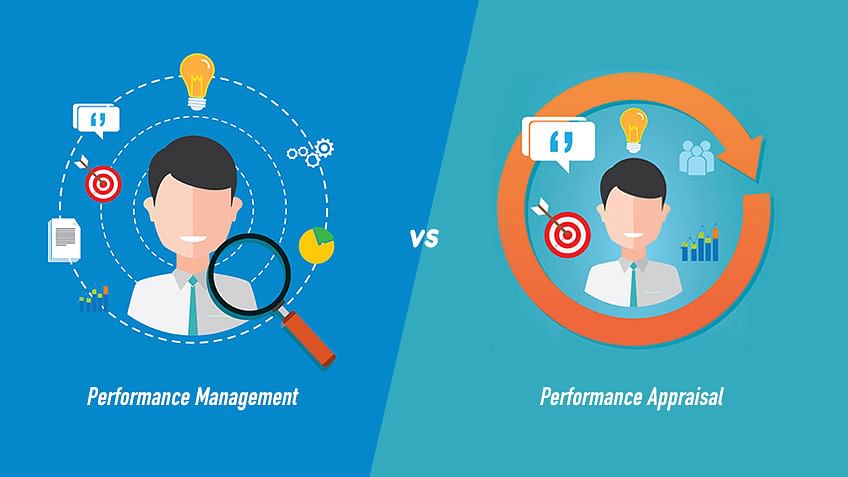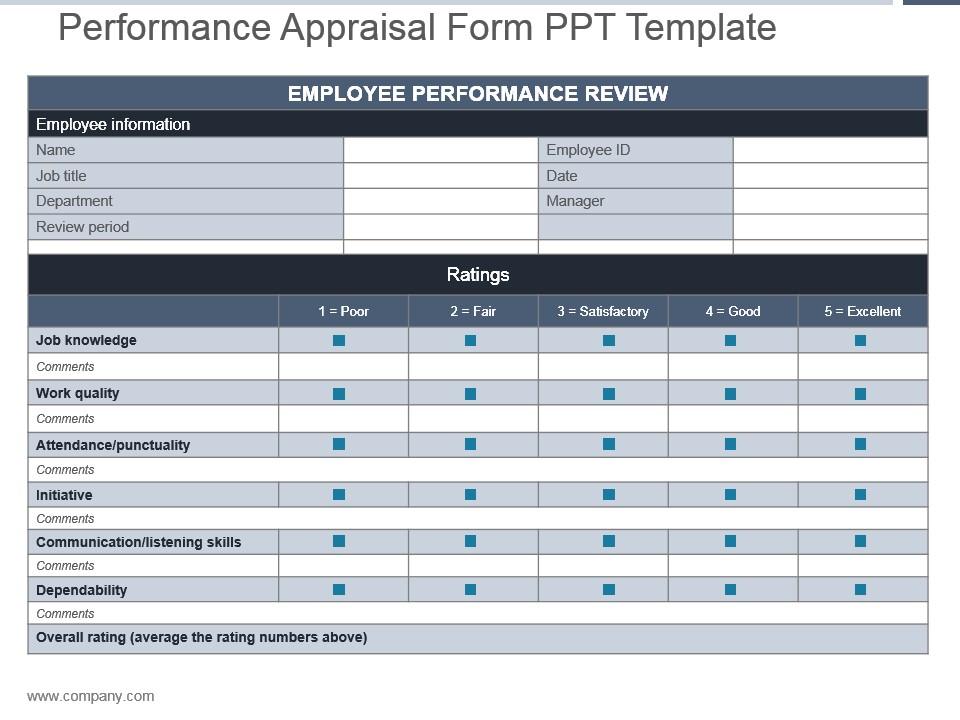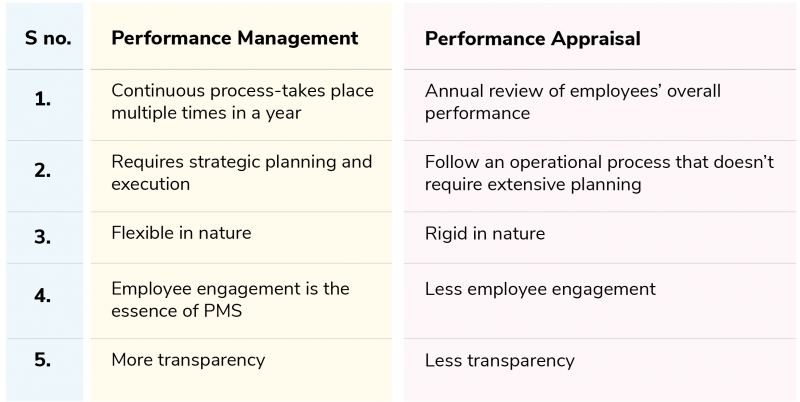Unravelling the Dynamics: Performance Appraisal vs. Performance Management
An individual's job performance and productivity are evaluated through a systematic procedure called performance appraisal, which is sometimes referred to as performance evaluation or employee appraisal. It usually entails a recurring evaluation, frequently done once a year, during which the achievements, advantages, disadvantages, and potential growth areas of an employee are reviewed. Giving employees feedback, acknowledging accomplishments, identifying areas for improvement, and making judgements about promotions, pay adjustments, or training opportunities are the main goals of performance appraisals.
Essay assessments, ranking systems, and visual grading scales are examples of traditional performance appraisal techniques. While ranking methods evaluate employees against one another, graphic rating scales assign numerical scores to several areas of an employee's performance. Essay assessments call for a narrative that is created and evaluates the performance of the employee. However, these approaches have come under fire for being unreliable, biassed, and subjective.
Prominent scholars in the field, such Douglas McGregor and Peter Drucker, have offered insightful analyses on performance evaluation. In addition to stressing the value of having clear expectations and goals for staff members, Drucker said that the main focus of a successful performance review should be results rather than character attributes. In his Theory X and Theory Y, McGregor emphasised the necessity for a constructive and collaborative approach while highlighting the effect that managerial presumptions have on worker motivation and output.
Performance Management:
Beyond the confines of a standard performance review, performance management is a thorough and ongoing activity. Setting goals, giving regular feedback, coaching, planning for growth, and having continuous performance conversations are all part of it. Performance management's main objectives are to develop employees, establish a continuous improvement culture, and match individual performance with organisational goals.
A variety of approaches are used into performance management, such as goal-setting, frequent check-ins, 360-degree feedback, and goals for performance growth. Establishing goals entails working together to create targets that support organisational priorities, and frequent check-ins offer chances for further coaching and feedback. 360-degree feedback is gathering feedback on an employee's performance from peers, subordinates, and superiors in order to present a comprehensive picture.
Key Differences:
Reference list
Aharon Tziner and Rabenu, E. (2018). Improving Performance Appraisal at Work. Edward Elgar Publishing.
Armstrong, S. (2010). The essential performance review handbook : a quick and handy resource for any manager or HR professional. Franklin Lakes, Nj: Career Press.
Arthur, D. and American Management Association (2008). Performance appraisals : strategies for success. New York: American Management Association.
Borman, W.C. (1994). Performance evaluation in organizations. Aldershot ; Brookfield, Usa: Dartmouth.
de Andrés, R., García-Lapresta, J.L. and González-Pachón, J. (2010). Performance appraisal based on distance function methods. European Journal of Operational Research, 207(3), pp.1599–1607. doi:https://doi.org/10.1016/j.ejor.2010.06.012.
DeNisi, A.S. and Kluger, A.N. (2000). Feedback effectiveness: Can 360-degree appraisals be improved? Academy of Management Perspectives, 14(1), pp.129–139. doi:https://doi.org/10.5465/ame.2000.2909845.
Edwards, M.R. and Ewen, A.J. (1996). 360° Feedback : The Powerful New Model For Employee Assessment & Performance Improvement. New York: Amacom.
Grote, R.C. (1996). The complete guide to performance appraisal. New York: Amacom.
Lyster, S. and Arthur, A. (2007). 199 pre-written employee performance appraisals : the complete guide to successful employee evaluations and documentation : with companion CD-ROM. Ocala, Fla.: Atlantic Pub. Group.
Paauwe, J. (2020). HRM and Performance: Achievements, Methodological Issues and Prospects. Journal of Management Studies, 46(1), pp.129–142.
Pope, E.C. (2004). HR how-to--performance management : everything you need to know to manage employee performance ... Chicago, Il.: Cch Knowledgepoint.
Varma, A., Budhwar, P.S. and DeNisi, A. (2008). Performance Management Systems. Routledge.




your article Content and your article skill both are always good. .I really appreciate this blog.
ReplyDeleteIllustrative content share the knowledge in great extend.
ReplyDeleteAppreciate good work.
Thank you for your valuable comments
ReplyDelete